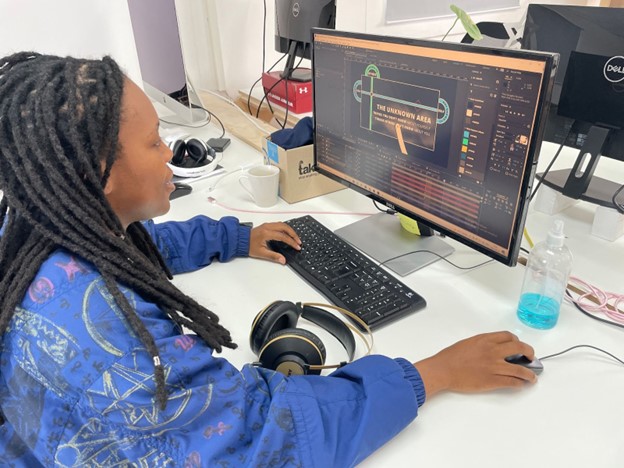Ever since ChatGPT launched in June 2020, Artificial Intelligence (AI) has gone from being a science fiction concept we would see in movies to an everyday tool that improves our lives.
While ChatGPT takes a lot of the credit for introducing AI to the mainstream, the truth is that South Africans have been using AI in business for many years. If you’ve ever dealt with a chatbot to report a fault on your DsTV decoder or used Google Translate, chances are that you’ve been using AI! Most businesses that have CRM (Customer Relationship Management) software also use AI to organize and automate their sales, marketing, customer service and technical support.
But there are many more inspiring examples of Artificial intelligence use found throughout South Africa that aren’t just the biggest AI companies out there - so let’s take a look at the impact of AI on business, and some of the benefits of AI.
How can I use AI in my ZA business?
While a lot of the larger plays are happening at some of the biggest AI companies, there are plenty of cost-effective ways to engage with different types of AI and scale your modest-sized South African business. Here are five ways small business owners can use Generative AI to grow their business:
- Content Creation. Consider using AI to generate ideas for your company’s marketing campaigns and social media content. Think of ChatGPT as your sounding board. You can input any work you may be busy with and ask it for feedback. For example, if you’re writing up a new business plan for the year, complete with your vision, mission, goals, and a SWOT analysis, you can upload your draft and ask for improvements that you can iterate on. A prompt could look like this: “Please review my business plan and provide suggestions on ways to enhance the market analysis, financial projections and overall strategy.”
- Process Automation. Save time and improve efficiency in your business by automating repetitive tasks, such as scheduling appointments and processing orders. Link your calendar to a chat platform that supports ChatGPT (Slack or Microsoft Teams, for example). Once integrated, you could say something like “Set up a reminder to invoice X client on the last business day of each month.”
- Data Analysis. There are free AI data analysis tools that will allow you to identify trends and make smarter data-driven decisions. Input your monthly sales figures, customer feedback or website traffic to get a macro perspective on how you can increase profitability. Adjust inventory levels, pricing strategies, and marketing campaigns to better meet customer demand and increase sales.
- Training & Team-building. Employee training & team-building are another great place to use generative AI. You could create fun office quizzes or instructional videos to educate your staff, boost office morale and beef up your bottom line.
- Image Generation. Artificial intelligence platforms such as Midjourney allow you to generate images with simple text prompts. These can change how you communicate your company’s ideas in creative and distinctive ways.
AI use cases
CLEVVA is a company that builds, deploys, and manages virtual agents for companies. These AI-powered conversational experts drive down customer, supplier and staff engagement costs.

CLEVVA’s CEO, Ryan Falkenberg, discusses the impact of AI on business in 2024: “The ability to increasingly automate conversations, especially those that are bound by rules, impacts the volume of conversations humans are required to have directly with other humans. This has significant implications to any front office environment, where sales, service and support are being offered, as well as to contact centers and in-store assistants.”
AI for business offers industries a competitive edge by freeing up their employees’ collective brainpower from rule-bound drudgework. If we allow that drudgework to be outsourced to machine learning tools, it gives us time and space to start learning to become more conscious human beings and better at higher-level thinking. This has a positive impact on both our business and society.
AI in South African Society
From a broader societal perspective in South Africa, AI lowers the cost of engagement and increases access to expertise in a country still harshly divided along economic lines. A few years ago, a person in a rural area struggled to physically access someone in a business who could help them understand their needs or situation, and then shape a solution that fits their reality.
Now, using digital experts and AI business, everyone can access intelligent, expert-level support across many aspects of their lives. This means everyone can get personalized attention, whether it relates to buying a funeral cover, processing a claim, getting a service query resolved, or even accessing agricultural, legal, or medical advice.
AI breaks down language barriers
In a country with 11 official languages, it stands to reason that there are exciting developments around multi-language use. Enter Nic Ray, CEO of ‘data as a service’ business DataEQ, one of the leading AI companies based in SA and operating globally.

“I think one of the big challenges and opportunities for AI in South Africa is how we get AI that can engage, and work, and be accurate in South African languages and other African languages,” says Nic.
“To do that, we need this interaction between local language speakers and the machines to build training data – and to quality assure and verify the AI’s result. At the moment, we are building out these training datasets to build machine learning classifiers that are very good at interpreting and understanding local language, particularly on the African continent.”
With the rapid advance of conversational AI capability, and more recently the acceleration in generative AI, regular South African businesses can train a virtual agent in English and, by leveraging advanced language translation services, have it engage with customers in many other languages across multiple channels.
AI shapes South African Biz Ed
The business of education is also bursting with possibility thanks to the benefits of AI. Mindjoy provides teachers with the tools and resources they need to make the classroom a place for curiosity and boundless learning, through the use of AI tutors.
Tutors using the latest AI services help solve staffing and teacher shortages, particularly in under-resourced schools where teachers are in short supply. Education departments are making drastic budget cuts and tutors can help mitigate learning loss and support when substitute teachers are no longer available due to budget constraints.

“AI is revolutionizing the landscape of education, functioning as an inspiring catalyst for creativity and innovation”, says Mindjoy CEO Gabi Immelman. “We're witnessing a pivotal transformation in the educational sphere, where the role of teachers is evolving with technology. Currently, we are focused on empowering educators with accessible AI tools and resources.”
Cape Town-based business Mygrow is using AI to improve the development, measurement, and tracking of EQ competencies in individuals and teams, aiming to enhance their performance in the workforce. Pictured below, Mygrow employee Anelissa Nkanyuza animates a Mygrow EQ video for online upload.

Mygrow is “on a mission to build an emotionally intelligent world”, according to co-founder Theran-Knighton Fitt. Using artificial intelligence to drive emotional intelligence in the South African workplace is a beautiful paradox that sums up these interesting times we find ourselves in: the machines learn from us so that we may learn from the machines.
South Africa’s AI future
South Africa is well positioned at the foot of Africa with reliable internet, smart business innovators and a ‘can do’ approach when it comes to solving the continent’s business challenges using AI.
How everyday South Africans embrace AI in business to bridge the divide between what we think we already know and what we can still learn is sure to be a fascinating journey, as we prompt ourselves – and our new AI partners — to perform even better.